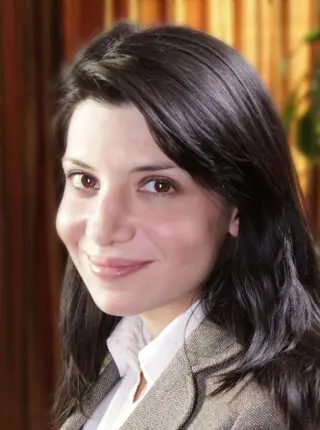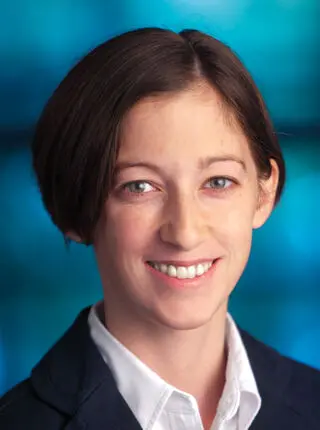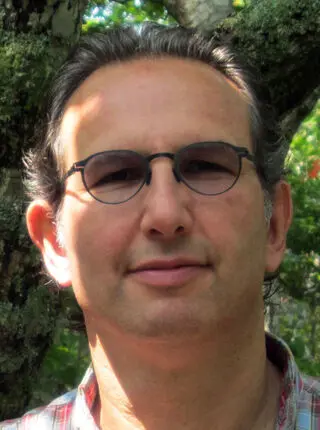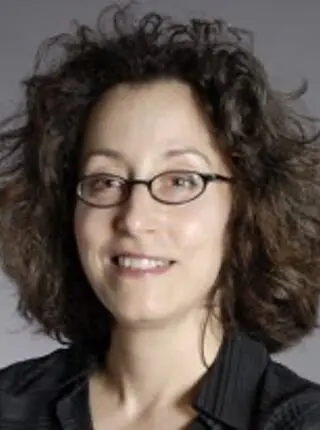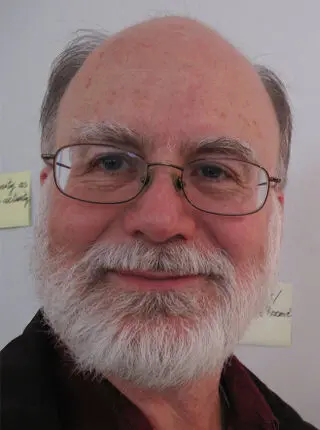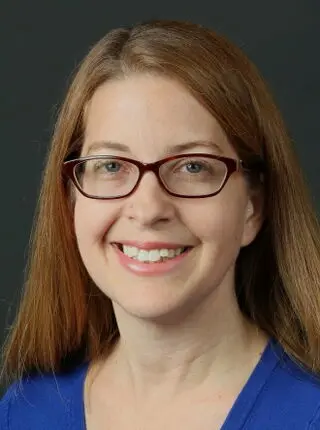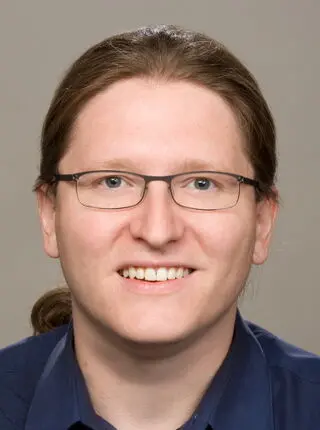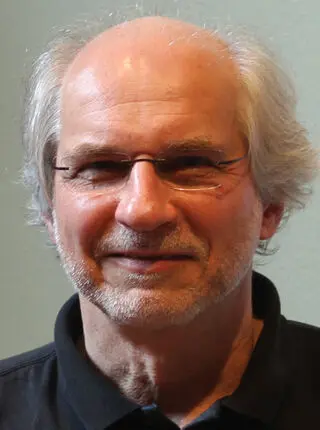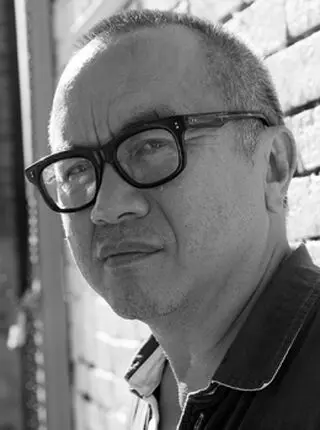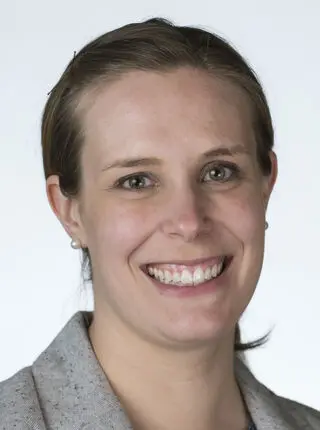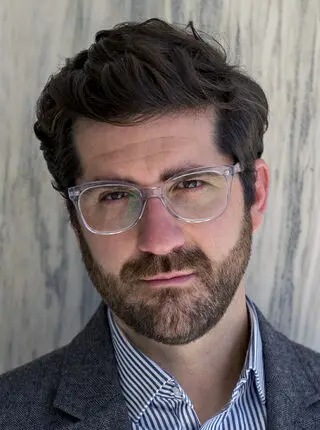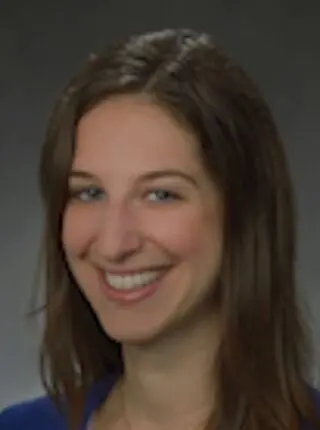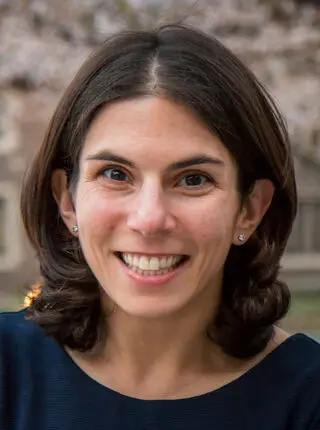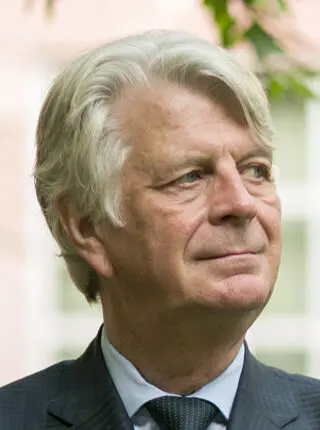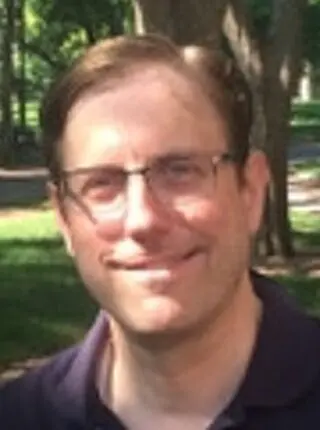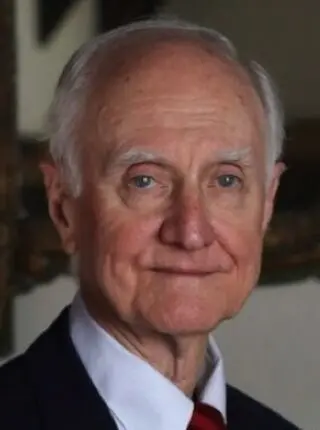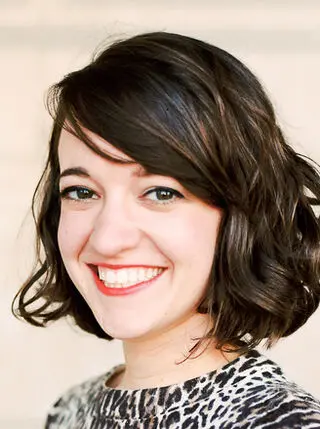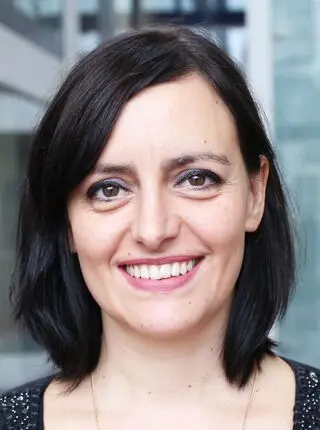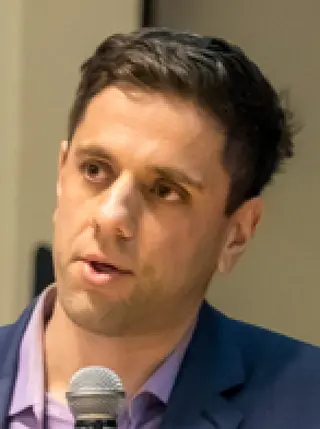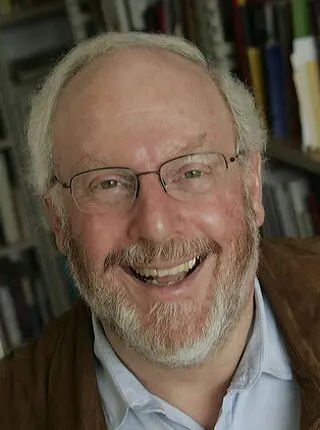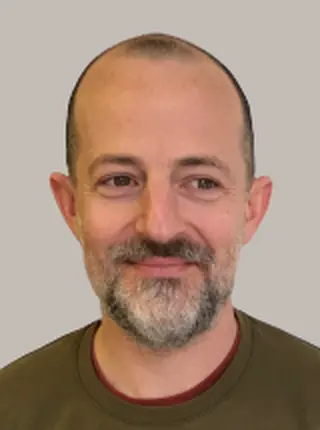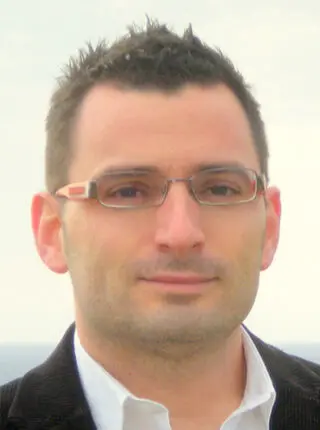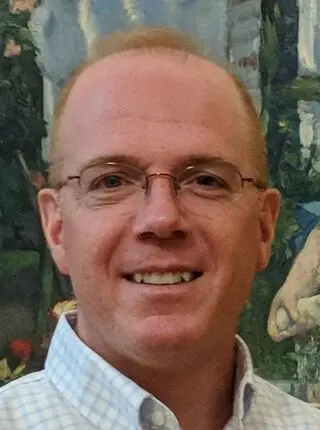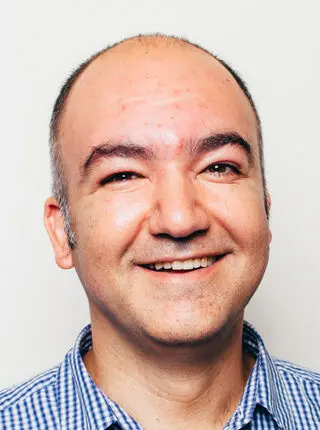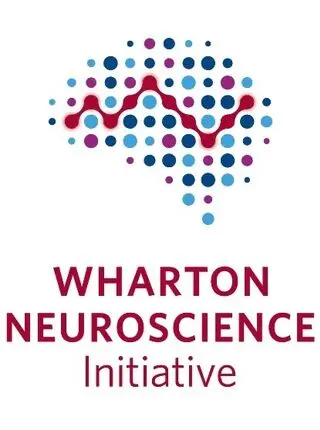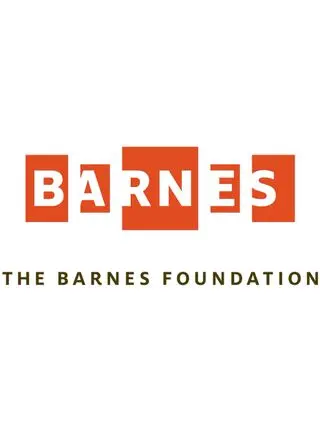Collaborators
Penn Faculty
-
Read More about Coren Apicella
Coren Apicella
School of Arts and Sciences
Coren Apicella
School of Arts and Sciences
Coren Apicella is an assistant professor of psychology and director of the Human Behavior and Origins Laboratory at the University of Pennsylvania. Her research investigates how biology and culture work jointly, and separately, to shape individual and social behavior, from mate choice to cooperation, to competition. In addition to more conventional laboratory studies, a significant portion of her time is devoted to fieldwork with the Hadza, a population of hunter-gatherers in Tanzania. She has published studies on the attractiveness of faces, voices, bodies and body odors. Her research has been instrumental in demonstrating that many of the regularities uncovered on attractiveness judgments in Western populations also hold true in hunter-gatherers. Her work has been featured in a number of media outlets including the New York Times, NPR, BBC and CNN.
-
Read More about Danielle Bassett
Danielle Bassett
School of Engineering and Applied Science
Danielle Bassett
School of Engineering and Applied Science
Danielle Bassett is currently a MacArthur Fellow, as well as the Eduardo D. Glandt Faculty Fellow, and Associate Professor of Bioengineering at the University of Pennsylvania. Dr. Bassett has 14 years of experience in developing and applying tools from network science to understand large-scale brain network organization estimated from structural and functional neuroimaging data from a wide range of modalities including MRI, fMRI, ECOG, DTI, DSI, and MEG in humans. Dr. Bassett has published extensively on topics related to network science, the work includes 181 accepted or published articles that have together garnered >12,900 citations (h-index = 48). Dr. Bassett received a B.S. in physics from the Pennsylvania State University and a Ph.D. in physics from the University of Cambridge, UK. Following a postdoctoral position at UC Santa Barbara, she was a Junior Research Fellow at the Sage Center for the Study of the Mind. In 2012, she was named American Psychological Association’s ‘Rising Star’ and given an Alumni Achievement Award from the Schreyer Honors College at Pennsylvania State University for extraordinary achievement under the age of 35. In 2014, she was named an Alfred P Sloan Research Fellow and was the youngest to receive the MacArthur Fellow Genius Grant. In 2015, she received the IEEE EMBS Early Academic Achievement Award, and was named an ONR Young Investigator. In 2016, she received an NSF CAREER award and was named one of Popular Science’s Brilliant 10. In 2017 she was awarded the Lagrange Prize in Complexity Science. She is the founding director of the Penn Network Visualization Program, a combined undergraduate art internship and K-12 outreach program bridging network science and the visual arts. Her work has been supported by the National Science Foundation, the National Institutes of Health, the Army Research Office, the Army Research Laboratory, the Office of Naval Research, the Defense Advanced Research Projects Agency, the ISI Foundation, the Alfred P Sloan Foundation, and the John D and Catherine T MacArthur Foundation.
-
Read More about Liz Brannon
Liz Brannon
School of Arts and Sciences
Liz Brannon
School of Arts and Sciences
Liz Brannon is the Edmund J. and Louise W. Kahn Term Chair Professor of Psychology. Her research focuses on the development and evolutionary building blocks of numerical cognition using diverse subject populations (human adults, human infants, children of all ages, nonhuman primates) and many behavioral and neurobiological methods (psychophysical methods, fMRI, ERP, EEG, single-unit recording in monkeys). She was awarded the Young Investigator Award from The Society for Experimental Psychology, a CAREER award from the National Science Foundation, a Merck Scholar Award, and a James McDonnell Scholar Award. Dr. Brannon’s research is funded by The National Institutes of Health and The National Science Foundation. She is an associate editor at Open Mind, serves on the board of The Mathematical Cognition and Learning Society, and directs the psychology honors program for the psychology department at Penn.
-
Read More about John A. Detre
John A. Detre
Perelman School of Medicine
John A. Detre
Perelman School of Medicine
John Detre is a neurologist and neuroscientist whose research focused on cerebral blood flow and its applications as a biomarker of regional brain function. He is founding director of the Center for Functional Neuroimaging at Penn.
-
Read More about Martha J. Farah
Martha J. Farah
School of Arts and Sciences
Martha J. Farah
School of Arts and Sciences
Martha J. Farah is a cognitive neuroscientist who works at the interface of neuroscience and society. Her recent research focuses on the effects of early socioeconomic deprivation on brain development, as well as the way neuroscience is changing how we think of ourselves as physical, mental and moral beings. She was founding director of Penn’s Center for Cognitive Neuroscience and now directs Penn’s Center for Neuroscience & Society.
-
Read More about Gary Hatfield
Gary Hatfield
School of Arts and Sciences
Gary Hatfield
School of Arts and Sciences
Gary Hatfield is Seybert Professor of Philosophy and Director of Penn’s Visual Studies program. Visual Studies at Penn combines vision science, history of art (and related fields), and fine arts/design. He received his doctorate in History of Science/Philosophy/Psychology from the University of Wisconsin–Madison in 1979, then taught at Harvard and Johns Hopkins before coming to Penn in 1987. He has directed dissertations in history of philosophy, philosophy of psychology, and philosophy and history of science. He has long been fascinated by visual perception and the mind–body problem. In 1990, he published The Natural and the Normative: Theories of Spatial Perception from Kant to Helmholtz (MIT Press). In 2009, Perception and Cognition: Essays in the Philosophy of Psychology appeared from the Clarendon Press. A revised version of his book on Descartes’ Meditations appeared in 2014. In 2012, a volume co-edited with the psychologist Sarah Allred was published by Oxford, Visual Experience: Sensation, Cognition, and Constancy.
-
Read More about Elizabeth Johnson
Elizabeth Johnson
The Wharton School
Elizabeth Johnson
The Wharton School
Elizabeth (Zab) Johnson is the executive director and senior fellow of the Wharton Neuroscience Initiative. Her research focuses on vision and visual behavior, spanning physiological approaches in the retina and early visual cortex to using eye tracking to investigate how human observers look and navigate through the world, how these processes unfold over time and with experience, and the role of visually-guided social cognition and decision-making. As an expert on color vision, she has collaborated with Lenovo to develop computer and tablet screens with features that provide a more personalized color experience. Before coming to Penn in 2016, she spent 14 years at Duke University, where she was on the faculty in the Neurobiology Department and served as the Associate Director of the Duke Institute for Brain Sciences. Zab has a long-time interest in how our perception of visual art informs how we see.
-
Read More about Joe Kable
Joe Kable
School of Arts and Sciences
Joe Kable
School of Arts and Sciences
Joe Kable is the Baird Term Associate Professor of Psychology and Marketing at the University of Pennsylvania, and is currently serving as the Associate Director of Research for MindCORE. He studies the psychological and neural mechanisms of human decision making, using an integrated empirical approach that borrows from economics, the psychology of judgment and decision making, and social and cognitive neuroscience. He received his B.S. from Emory University in 1996 and his Ph.D. in Neuroscience from the University of Pennsylvania in 2004. He was a post-doctoral scholar at the Institute for the Interdisciplinary Study of Decision Making at NYU, before re-joining Penn in the Department of Psychology in 2008. He is a past recipient of the Early Career Award and the current President-Elect of the Society of Neuroeconomics. His research is supported by the National Institute of Drug Abuse, the National Institute of Mental Health, the National Cancer Institute, and the National Science Foundation. He has given public talks at the Franklin Institute and Philadelphia Science Festival and his work has been featured in the New York Times, Washington Post, Newsweek, NBC News and Freakonomics.com.
-
Read More about Michael Leja
Michael Leja
School of Arts and Sciences
Michael Leja
School of Arts and Sciences
Michael Leja (Ph.D., Harvard) studies the visual arts in various media (painting, sculpture, film, photography, prints, illustrations) in the 19th and 20th centuries, primarily in the United States. His work is interdisciplinary and strives to understand visual artifacts in relation to contemporary cultural, social, political, and intellectual developments. He is especially interested in examining the interactions between works of art and particular audiences. His book Looking Askance: Skepticism and American Art from Eakins to Duchamp (2004) traces the interactions between the visual arts and the skeptical forms of seeing engendered in modern life in northeastern American cities between 1869 and 1917. It won the Modernist Studies Association Book Prize in 2005. An earlier book, Reframing Abstract Expressionism: Subjectivity and Painting in the 1940s (1993) situates the paintings of Jackson Pollock, Barnett Newman, and others in a culture-wide initiative to re-imagine the self in the midst of a traumatic history. It won the Charles Eldredge Prize for Distinguished Scholarship in American Art from the Smithsonian American Art Museum. He is currently at work on a book exploring changes in pictorial forms and in social relations associated with the industrialization of picture production and the development of a mass market for images in the mid-nineteenth century.
-
Read More about Ken Lum
Ken Lum
Weitzman School of Design
Ken Lum
Weitzman School of Design
Vancouver-born artist Ken Lum, is known for his conceptual and representational art in a number of media, including painting, sculpture and photography. A longtime professor, he currently is the Chair of Fine Arts at the University of Pennsylvania’s School of Design in Philadelphia. He was formerly Professor of Art at the University of British Columbia, Vancouver where he was also Head of the Graduate Program in Studio Art; Bard College, Annendale on Hudson, New York, and the l’Ecole des Beaux Arts, Paris. Besides English, Lum speaks French and Cantonese Chinese. A co-founder and founding editor of Yishu: Journal of Contemporary Chinese Art, he is a prolific writer with numerous published articles, catalogue essays and juried papers. In 2000, he worked as co-editor of the Shanghai Biennale. As well, Lum was keynote speaker at the 2010 World Museums Conference held at the Shanghai Museum in Shanghai, the third conference accompanying the 15th Biennale of Sydney in Sydney, Australia in 2006 and the Universities Art Association of Canada conference held in Vancouver in 1997. As an artist, he has a long and active art exhibition record of over 30 years, including major exhibitions such as Documenta 11, the Venice Biennale, Sao Paolo Bienal, Shanghai Biennale, Carnegie Triennial, Sydney Biennale, Busan Biennale, Liverpool Biennial, Gwangju Biennale, Moscow Biennial, Whitney Biennial, among others. Since the mid 1990s, Lum has worked on numerous permanent public art commissions including for the cities of Vienna, the Engadines (Switzerland), Rotterdam, St. Louis, Leiden, Utrecht, Toronto and Vancouver. He has also realized temporary public art commissions in Stockholm, Istanbul, Torun (Poland), Innsbruck and Kansas City. He is currently working on a memorial to the 1986 Lake Nyos disaster for the Government of Cameroon. Related to his public art, he has written several essays on the nature of subject formation and public space. Lum’s public art often deals with individual and social identity formation in the context of historical trauma and the complications of official and non-official memory. In 2016, he completed a memorial to the Canadian war effort in Italy during World War 2. The work is sited in Nathan Phillips Square of Toronto City Hall and depicts the town of Ortona, Italy, in the aftermath of war while four soldiers stand sentinel at each corner of the low-perspective work. Lum has also worked as part of architectural/engineering teams. He was on a team with Dialog Design (Edmonton) in designing a replacement bridge for the Walterdale Bridge across the North Saskatchewan River in Edmonton. He was also part of team with The Planning Partnership of Toronto designing a public space called Huron Square for Toronto Chinatown. Lum was on a team with Miller Hull Architects of Seattle, in conjunction with Space2Place Landscape Architecture of Vancouver to devise a Master Plan for the Lions Gate Secondary Wastewater Treatment plant for North Vancouver, BC. Lum has also been involved in co-conceiving and co-curating several large scale exhibitions including Shanghai Modern: 1919 – 1949, an exhibition about the art, culture and politics of Shanghai during the first republican period of China after the demise of the Qing Dynasty, and to which he contributed an essay on the policy of aesthetic education in China’s first modern art school; Sharjah Biennial 2007: Belonging, in Sharjah, United Arab Emirates, a groundbreaking exhibition to which he contributed an essay on the subject of identity formation without foundations, and the NorthWest Annual in Seattle. He is co-curator of Monument Lab: A Public Art and History Project, a city wide art public art exhibition in Philadelphia in 2017. The exhibition dealt with the ways in which space is engaged in terms of a city’s monumental landscape. The aim of Monument Lab was to better understand the mechanisms of memorialization by questioning the status of the monument in the context of its canonical disposition. The exhibition was widely reviewed and praised as well as become a referent for other cities in dealing with the problems of controversial monuments and statues. He is a Guggenheim Fellow and a Penn Institute of Urban Research Fellow. He was offered a Loeb Fellowship from Harvard University in 2011 which was not exercised. In late 2017, Lum was appointed as an Officer of the Order of Canada. A book of Lum’s writings is presently being prepared by Concordia University Press with anticipated issuance in mid to late 2018.
-
Read More about Allyson Mackey
Allyson Mackey
School of Arts and Sciences
Allyson Mackey
School of Arts and Sciences
Dr. Allyson Mackey studies individual differences in brain plasticity and development with an eye towards personalizing the type and timing of educational interventions. She joined the Department of Psychology faculty at the University of Pennsylvania in 2016. Dr. Mackey completed her postdoctoral training at the Massachusetts Institute of Technology. She holds a PhD in Neuroscience from the University of California, Berkeley, and a BS in Biological Sciences from Stanford University.
-
Read More about Lynn Meskell
Lynn Meskell
School of Arts and Sciences
Lynn Meskell
School of Arts and Sciences
Lynn Meskell is PIK Professor of Anthropology in the School of Arts and Sciences and Professor of Historic Preservation in the Weitzman School of Design. At the Penn Museum she is curator in the Middle East and Asia sections. She is currently AD White Professor-at-Large at Cornell University (2019-2025). She holds Honorary Professorships at Oxford University, University of Liverpool (UK), and the University of the Witwatersrand (South Africa). Previously Lynn was the Shirley and Leonard Ely Professor of Humanities and Sciences in the Department of Anthropology at Stanford University. She is a Fellow of the Australian Academy of the Humanities. Over the past twenty years she has been awarded grants and fellowships including those from the Andrew W. Mellon Foundation, the National Science Foundation, the Australian Research Council, the American Academy in Rome, the School of American Research, Oxford University and Cambridge University. She is the founding editor of the Journal of Social Archaeology.
Over the last decade Lynn has conducted an institutional ethnography of UNESCO World Heritage, tracing the politics of governance and sovereignty and the subsequent implications for multilateral diplomacy, international conservation, and heritage rights. Employing archival and ethnographic analysis, her award-winning book A Future in Ruins: UNESCO, World Heritage, and the Dream of Peace reveals UNESCO’s early forays into a one-world archaeology and its later commitments to global heritage. Building on this research, she is currently examining the entwined histories of colonialism, internationalism, espionage and archaeology in the Middle East coupled with a new largescale survey project in Syria and Iraq to assess public opinion on heritage destruction and reconstruction. Other recent fieldwork explores monumental regimes of research and preservation around World Heritage sites in India and how diverse actors and agencies address the needs of living communities.
-
Read More about Matt Neff
Matt Neff
Weitzman School of Design
Matt Neff
Weitzman School of Design
An artist, printer, and educator living in Philadelphia, Matt Neff is the Director of Undergraduate Programs in Fine Arts and the Common Press at the University of Pennsylvania. He holds an MFA from the University of Pennsylvania, a BFA in Studio Art and a BA in Art History from Indiana University. His work is concerned with historical and current negotiations of power and privilege. Neff has worked on a number of projects with institutions including Institute of Contemporary Art in Philadelphia, The Drawing Center, the Philadelphia Museum of Art, and the Wharton Esherick Museum. His work is included in public and private collections including the Rare Book and Manuscript Library at the University of Pennsylvania.
-
Read More about James O. Pawelski
James O. Pawelski
School of Arts and Sciences
James O. Pawelski
School of Arts and Sciences
Dr. James O. Pawelski, Ph.D. is Professor of Practice and Director of Education in the Positive Psychology Center and Adjunct Professor of Religious Studies in the School of Arts and Sciences at the University of Pennsylvania. Having earned a doctorate in philosophy, he is the Principal Investigator on a 3-year, $2.5M grant from the Templeton Religion Trust on “The Humanities and Human Flourishing: A Multi-Disciplinary Collaboration for Understanding, Assessing, and Cultivating Well-Being.” He is the author of The Dynamic Individualism of William James, editor of the philosophy section of the Oxford Handbook of Happiness, co-editor of The Eudaimonic Turn: Well-Being in Literary Studies, co-editor of On Human Flourishing: A Poetry Anthology, and co-author (with his wife Suzann Pileggi Pawelski) of Happy Together: Using the Science of Positive Psychology to Build Love That Lasts. Since 2005, Dr. Pawelski has served as the founding director of Penn’s Master of Applied Positive Psychology (MAPP) program, where he teaches courses on positive interventions and the humanities and human flourishing, for which he has received the Liberal and Professional Studies Award for Distinguished Teaching in Professional Graduate Programs. He is a past president of the William James Society, the founding executive director of the International Positive Psychology Association, and a member of the advisory board of the International Positive Education Network. An international keynote speaker who has given talks in more than 20 countries on six continents, Dr. Pawelski is the recipient of a Practice Excellence Award from the Ministry of Education of the People’s Republic of China, as well as the Humanitarian Innovation Award for the Humanities, Arts, and Culture from the Humanities Innovation Forum at the United Nations.
-
Read More about Rebecca L. Pearl
Rebecca L. Pearl
Perelman School of Medicine
Rebecca L. Pearl
Perelman School of Medicine
Rebecca L. Pearl, Ph.D., is an Assistant Professor of Psychology in Psychiatry at the University of Pennsylvania Perelman School of Medicine. She received her B.A. from Duke University and her Ph.D. in clinical psychology from Yale University. She completed her pre-doctoral clinical internship at McLean Hospital/Harvard Medical School and her post-doctoral fellowship at Penn. Dr. Pearl’s research investigates the mental and physical health consequences of weight bias and stigma. Her work also examines potential strategies to reduce weight stigma, such as through the use of non-stereotypical media portrayals of obesity. Dr. Pearl is currently testing the effects of a cognitive-behavioral intervention for weight bias internalization (or self-directed stigma) on psychosocial well-being, weight, and cardiometabolic health among individuals with obesity. In addition to weight stigma, Dr. Pearl also conducts research on other forms of appearance-related stigma among patients with skin diseases and those seeking reconstructive or cosmetic surgery.
-
Read More about Michael Platt
Michael Platt
School of Arts and Sciences
Michael Platt
School of Arts and Sciences
Michael Platt is the James S. Riepe University Professor of Neuroscience in the Perelman School of Medicine, Psychology in the School of Arts and Sciences, and Marketing in the Wharton School. Platt and his team ask big questions to find big answers that will help us improve health and well-being, enhance business, and build a better society. They are developing new and deeper understanding of how our brains shape how we think and how our lives shape our biology. The team uses a wide array of cutting-edge techniques including behavioral analysis, eye-tracking, mobile EEG and mobile eye-tracking, biometrics including heart rate and GSR, brain imaging, genomics, epigenomics, brain recordings, brain stimulation, TMS, optogenetics, and pharmacology. His principle questions focus on the biological mechanisms that underlie decision-making in social environments, the grasp of which has broad-scale implications for improving health and welfare in societies worldwide.
-
Read More about Megan S. Ryerson
Megan S. Ryerson
Weitzman School of Design
Megan S. Ryerson
Weitzman School of Design
Dr. Megan S. Ryerson is the UPS Chair of Transportation and an Associate Professor of City and Regional Planning and Electrical and Systems Engineering. She was appointed Associate Dean for Research of PennDesign in 2018. Professor Ryerson and her team design algorithms and methods to address cross-disciplinary transportation planning challenges such as the introduction of autonomous vehicles and new infrastructure design strategies for pedestrian and bicycle safety to improve accessibility and mobility. She is the Research Director of the Mobility21 Transportation Research Center, a national University Transportation Center, and a Senior Fellow at the Center for Injury Research and Prevention at Children’s Hospital of Philadelphia. She serves on the Board of Advisors of The Eno Center for Transportation, the Program Committee for the International Conference on Research in Air Transportation, two Transportation Research Board committees, and the Board of Advisors of the Los Angeles Metro Office of Extraordinary Innovation. In 2015 Professor Ryerson was named “Woman of the Year” by the Women’s Transportation Seminar Philadelphia Chapter. Professor Ryerson received a Ph.D. in Civil and Environmental Engineering from the University of California, Berkeley in 2010 and a BS in Systems Engineering from the University of Pennsylvania in 2003.
-
Read More about Frederick Steiner
Frederick Steiner
Weitzman School of Design
Frederick Steiner
Weitzman School of Design
Frederick Steiner (MRP’77, MA’86, PhD’86) is Dean of the School of Design. Most recently, he served as Dean of the School of Architecture and Henry M. Rockwell Chair in Architecture at The University of Texas at Austin for 15 years. He previously taught at Penn and the following institutions: Arizona State University, Washington State University, the University of Colorado at Denver. He was a visiting professor of landscape architecture at Tsinghua University in Beijing, China. Dean Steiner was a Fulbright-Hays scholar at Wageningen University, The Netherlands and a Rome Prize Fellow in Historic Preservation at the American Academy in Rome. During 2013-2014, he was the William A. Bernoudy Architect in Residence at the American Academy in Rome. He is a Fellow of both the American Society of Landscape Architects and the Council of Educators in Landscape Architecture, and a Scholar at the Penn Institute for Urban Research. Dean Steiner helped establish the Sustainable SITES Initiative, the first program of its kind to offer a systematic, comprehensive rating system designed to define sustainable land development and management, and holds the SITES Professional (SITES AP) credential. Dean Steiner was a presidential appointee to the national board of the American Institute of Architects and is on the Urban Committee of the National Park System Advisory Board. Previously he served as president of the Hill Country Conservancy (an Austin land trust) as well as in various capacities on the boards of Envision Central Texas and the Landscape Architecture Foundation. He worked on the Austin Comprehensive Plan (Imagine Austin) and on the campus plan for The University of Texas at Austin. Dean Steiner earned a Master of Community Planning and a B.S. in Design from the University of Cincinnati, and his Ph.D. and M.A. in city and regional planning and a Master of Regional Planning from PennDesign. Dean Steiner also received an honorary M.Phil. in Human Ecology from the College of the Atlantic.
-
Read More about Nina Strohminger
Nina Strohminger
The Wharton School
Nina Strohminger
The Wharton School
Prof. Strohminger’s research approaches key questions in business ethics through the lens of psychology.
She holds a B.A. in Cognitive Science from Brown University and a Ph.D. in Psychology from the University of Michigan. She has held postdoctoral fellowships at Duke University and Yale University.
-
Read More about Orkan Telhan
Orkan Telhan
Weitzman School of Design
Orkan Telhan
Weitzman School of Design
Orkan Telhan is Associate Professor of Fine Arts - Emerging Design Practices at the University of Pennsylvania, School of Design. He holds a Ph.D. in Design and Computation from MIT’s Department of Architecture. He was part of the Sociable Media Group at the MIT Media Laboratory and a researcher at the MIT Design Laboratory. Telhan’s individual and collaborative work has been exhibited internationally in venues including the Istanbul Biennial (2013), Istanbul Design Biennial (2012, 2016), Salone del Mobile Milano, Vienna Design Week, the Armory Show 2015 Special Projects, Ars Electronica (2007, 2017), ISEA, LABoral, Archilab, Architectural Association, the Architectural League of New York, MIT Museum, Museum of Contemporary Art Detroit, and the New Museum of Contemporary Art, New York. Telhan is also a co-founder of Biorealize Inc., a company specialized in advancing the tools and technologies for biological design.
-
Read More about Ian Verstegen
Ian Verstegen
School of Arts and Sciences
Ian Verstegen
School of Arts and Sciences
Ian Verstegen is the Associate Director of Visual Studies. He is the author of Arnheim, Gestalt and Art: A Psychological Theory (2005), A Realist Theory of Art History (2013) and Cognitive Iconology: When and How Psychology Explains Images (2014), and has edited volumes on the Della Rovere family (2007) and the American philosopher Maurice Mandelbaum (2010). Verstegen’s current writing and teaching are focused on the picture and its special characteristics. He has recently published a volume on the Italian Renaissance painter Federico Barocci (Federico Barocci and the Oratorians) and edited a volume on the New Materialism (The Art of the Real, with Roger Rothman). Current writing projects center on Rudolf Arnheim’s media theory and the Vienna School of Art History.
-
Read More about Linton A. Whitaker
Linton A. Whitaker
Perelman School of Medicine
Linton A. Whitaker
Perelman School of Medicine
Dr. Whitaker served as Chief of Plastic Surgery at the Hospital of the University of Pennsylvania and at The Children’s Hospital of Philadelphia . where he held the first two chairs in Plastic Surgery. He remains as Professor of Plastic Surgery at Penn. In 1972 Dr. Whitaker founded the Craniofacial Program at Penn and in 1987 established the University of Pennsylvania Center for Human Appearance remaining as Director. He holds eleven honorary memberships in medical societies including eight in foreign countries. Among other honors received, in 2016 he was named Icon in Plastic Surgery by the American Association of Plastic Surgeons, and in 2017, Clinician of the Year. Two Whitaker lectureships have been established in his name. He has been listed in Castle & Connelly’s Best Doctors in America 1979- 2015, in Who’s Who in America since 1996, and in Who’s Who in the World since 2004. He has authored or co-authored more than 230 papers, and six books on plastic surgery, and given more than 300 invited lectures to scientific organizations worldwide. As Chief and Program director at Penn he had primary responsibility for training 45 plastic surgery residents and 30 craniofacial fellows.
Other Collaborators
-
Read More about Amy Belfi
Amy Belfi
Missouri University of Science and Technology
Amy Belfi
Missouri University of Science and Technology
Amy Belfi is an Assistant Professor in the Department of Psychological Science at Missouri University of Science and Technology, where she directs the Music Cognition and Aesthetics Lab. She received her B.A. in Psychology from St. Olaf College, her Ph.D. in Neuroscience from the University of Iowa, and completed postdoctoral training at New York University. Her research focuses on the behavioral and neural mechanisms underlying aesthetic experience, specifically focused on music. She uses a variety of techniques, including functional neuroimaging, psychophysiology, and neuropsychological studies of patient populations. Overall, her research aims to identify and characterize how music, and other artistic works, influence behavior, affect, and cognition.
-
Read More about Beatriz Calvo-Merino
Beatriz Calvo-Merino
City, University of London
Beatriz Calvo-Merino
City, University of London
Dr Beatriz Calvo-Merino is a Cognitive Neuroscientist working at the Cognitive Neuroscience Research Unit (Psychology Department. City, University of London, UK). She trained at University College London (UK) and Universidad Complutense de Madrid (Spain). Her earlier research described the neural effects of sensorimotor experience on action observation using dance experts. Her current work integrates classical neuroscientific methods (i.e. fMRI, TMS, EEG) and sensorimotor expertise, with collaboration with performing artist (dancers and choreographers) to further understand the notions of embodied aesthetics and embodied cognition.
-
Read More about George Christopoulos
George Christopoulos
Nanyang Technological University
George Christopoulos
Nanyang Technological University
In my lab, we use neuroscience (physiology, facial eletcromyography, EEG, fMRI), experiments, virtual reality and observational methods to study Aesthetics with respect to the following dimensions: (i) deeper beliefs about beauty and how they affect consumption of cosmetics (ii) how culture and cultural symbols (statues, images, buildings) affect emotions as well aesthetic and other judgments (iii) how the sensory experience affects aesthetic judgments (iv) how the outcome of social interactions - like competition / cooperation - influence aesthetic judgments (v) how the built environment – especially indoor offices – affect performance. Besides pure academic research, we also collaborate with industry (such as cosmetics companies) to understand how consumers choose and use cosmetics and skincare products. We focus on the vast Asian market. We also build databases of facial stimuli (for instance with different make up styles) and try new methods (wearable tech and virtual reality). I hold a PhD in Cognitive Neuroscience from University of Cambridge and I am currently an Assistant Professors at NTU, Singapore.
-
Read More about Jonathan Fineberg
Jonathan Fineberg
University of the Arts
Jonathan Fineberg
University of the Arts
Jonathan Fineberg is University Professor and founding Director of The Ph.D. in Creativity at The University of the Arts in Philadelphia. He is the author of Art Since 1940: Strategies of Being the most widely read survey of postwar art and co-creator of Imagining America: Icons of 20th Century American Art, the award winning PBS television documentary of 2005. He is the author of some 30 books and catalogs on modern art, including: Zhang Xiaogang: Disquieting Memories (Phaidon, 2015), A Troublesome Subject: The Art of Robert Arneson (University of California Press, 2013), Christo and Jeanne-Claude: On the Way to the Gates (Yale & Metropolitan Museum of Art, NY); The Innocent Eye: Children’s Art and the Modern Artist (Princeton); When We Were Young: New Perspectives on the Art of the Child (University of California Press and The Phillips Collection, Washington DC); and most recently a book on neuroaesthetics: Modern Art at the Border of Mind and Brain (University of Nebraska Press, 2015). He is also the Edward William and Jane Marr Gutgsell Professor of Art History Emeritus at the University of Illinois and a Trustee Emeritus of The Phillips Collection in Washington D.C., where he was founding Director of the Center for the Study of Modern Art. He earned his B.A. and Ph.D. from Harvard University, an M.A. from the Courtauld Institute of Art in London, and he studied psychoanalysis at the Boston and Western New England Psychoanalytic Institutes. He has curated more than a dozen museum exhibitions, taught previously at Yale and at Illinois, and as a visitor at Harvard, Columbia, University of California, and elsewhere. His awards include the Pulitzer Fellowship in Critical Writing, the NEA Art Critic’s Fellowship, fellowships from the Dedalus Foundation, the Japan Foundation, the ACLS, the American Philosophical Society, and he received the College Art Association’s Award for Distinguished Teaching in the History of Art.
-
Read More about Maurizio Forte
Maurizio Forte
Duke University
Maurizio Forte
Duke University
Maurizio Forte, (PhD in archaeology, at University La Sapienza in Rome), is William and Sue Gross distinguished Professor of Classical Studies Art, Art History, and Visual Studies and Director of the DIG@Lab at Duke University. He was professor of World Heritage at the University of California, Merced, and Research Director at CNR (Italian National Research Council) of “Virtual Heritage:”. He has received National Geographic Explorer Award 2016, the NEH-AIA research award for archaeological research (2021) and the NEH-Digital Fellowship award (2022). He is currently leader of the NeuroArtifAct Project which is focussed on the neurologic and cognitive study of archaeological artefacts and museum collections through virtual reality, EEG and eye-tracking systems.
-
Read More about Xianyou He
Xianyou He
South China Normal University
Xianyou He
South China Normal University
Xianyou He is a professor of the Pearl River Scholar Program of Guangdong Province and a recipient of the New Century Excellent Talents Support Project of the Ministry of Education in China. Now, he works as dean of the School of Psychology at South China Normal University (SCNU), Vice Chairman of the Educational Psychology Committee of the Chinese Psychological Society, and director of the learning science center of SCNU. He received his PhD at SCNU, completed postdoctoral training at Beijing Normal University, and was a visiting scholar at the University of Memphis. His research mainly focuses on social cognition, neuroaesthetics, and language processing. He has received several funds on neuroaesthetics supported by the National Natural Science Foundation of China.
-
Read More about Alexander Kranjec
Alexander Kranjec
Duquesne University
Alexander Kranjec
Duquesne University
Alexander Kranjec is an Associate Professor in the Psychology Department at Duquesne University and Adjunct Faculty at Carnegie Melon University and the Center for the Neural Basis of Cognition. He studied Philosophy as an undergraduate at Grinnell College and received his Ph.D. in Experimental Psychology from the City University of New York. He then worked as a Postdoctoral Research Fellow in the Neurology Department and the Center for Cognitive Neuroscience at the University of Pennsylvania. Dr. Kranjec studies how abstract concepts interact in thought, language, and art. His lab uses cognitive behavioral methods, neuroimaging, non-invasive brain stimulation, case studies, and lesion analysis techniques in patients with focal brain damage.
-
Read More about Helmut Leder
Helmut Leder
University of Vienna
Helmut Leder
University of Vienna
Born in Germany, Helmut Leder studied Psychology (and art history as a minor) in Düsseldorf, Bonn and Aachen (1990 Diploma); he holds a PhD from University de Fribourg (1995). Pre-post-doc in Stirling UK in Vicki Bruce’s lab (on face processing) and in 2001 habilitation (psychology of aesthetics) at Freie Universität Berlin. Since 2004 full professor in Vienna, with an internationally renowned research focus in psychology of the arts, and empirical aesthetics (the EVA-lab). Currently president of the International Association of Empirical Aesthetics. Action Editor of the British Journal of Psychology, Head of the interdisciplinary research platform Cognitive Sciences. Several international visiting positions, eg. ATR Japan, Swinburne College, CUNY NY, USC, UCSD (in autumn 2018 at Columbia Univ. NY, Italian Academy.
-
Read More about Marcos Nadal
Marcos Nadal
University of the Balearic Islands
Marcos Nadal
University of the Balearic Islands
Marcos Nadal received his degree in Psychology from the University of the Balearic Islands (Spain) in 2000, and his Ph.D. in Psychology: Human Evolution and Cognition from the same university in 2007. From 2012 to 2015 he was a postdoctoral fellow at the Department of Basic Psychology and Research Methods of the University of Vienna. He is Professor and Director of the Department of Psychology at the University of the Balearic Islands. His research is devoted to characterizing the psychological, neural, and evolutionary foundations of humans’ capacity for aesthetic appreciation and creation. His contributions to Empirical Aesthetics have earned him the Baumgarten Award from the International Association of Empirical Aesthetics in 2014, and the Daniel Berlyne Award from the American Psychological Association’s Division 10, the Society for the Psychology of Aesthetics, Creativity and the Arts, in 2017. He is the Executive Editor of Empirical Studies of the Arts, and Associate Editor of Psychology of Aesthetics, Creativity, and the Arts. He is the co-editor of Art, Aesthetics, and the Brain (OUP Press).
-
Read More about William M. Perthes
William M. Perthes
The Barnes Foundation
William M. Perthes
The Barnes Foundation
Bill Perthes is the Bernard C. Watson Director of Adult Education at the Barnes Foundation. With a background in philosophy and art history Bill is interested in the communicative potential of works of art, how everyday experiences inform and effect art and aesthetic experiences, and the influence engaged experiences with works of art have on viewers. Bill’s work explores the visual language of art through object based empirical art analysis. His recent research has focused on how art experiences, both short and long term, can impact and inform the work of medical professionals. In addition Bill’s research focuses on Modernism, both in Europe and the United States, with a special concentration on the Abstract Expressionist painter Robert Motherwell.
-
Read More about Martin Skov
Martin Skov
Copenhagen University Hospital Hvidovre
Martin Skov
Copenhagen University Hospital Hvidovre
Senior Researcher, Danish Research Centre for Magnetic Resonance (Copenhagen University Hospital Hvidovre) and Decision Neuroscience Research Cluster (Copenhagen Business School). Editor, together with Oshin Vartanian, of Neuroaesthetics (Baywood, 2009). Works on understanding how sensory information is turned into hedonic values by the reward circuit. Not convinced beauty exists.
-
Read More about Oshin Vartanian
Oshin Vartanian
University of Toronto
Oshin Vartanian
University of Toronto
Oshin Vartanian received his PhD in experimental psychology from the University of Maine. He is the Editor of Psychology of Aesthetics, Creativity, and the Arts and past Editor of Empirical Studies of the Arts. His co-edited volumes include “Neuroaesthetics” (Baywood Publishing Company), “Neuroscience of creativity” (The MIT Press), “Neuroscience of decision making” (Psychology Press), and most recently “The Cambridge handbook of the neuroscience of creativity” (Cambridge University Press). His main areas of interest include the cognitive and neural bases of aesthetics and creativity.
-
Read More about Edward A. Vessel
Edward A. Vessel
Max Planck Institute for Empirical Aesthetics
Edward A. Vessel
Max Planck Institute for Empirical Aesthetics
Dr. Vessel is a Senior Research Scientist at the Max Planck Institute for Empirical Aesthetics (MPIEA) in Frankfurt, Germany. His research group uses behavioral and brain imaging techniques to study the psychological and neural basis of aesthetic experiences, such as when a person is aesthetically “moved” by visual art, poetry, architecture, music, or natural landscapes. Through his work and service, Dr. Vessel aims to elevate the international profile of neuroaesthetics research: he is a board member of the International Association of Empirical Aesthetics, and recently hosted a conference on Visual Neuroaesthetics at the MPIEA. He received his PhD in Neuroscience at the University of Southern California and is former co-director of the New York University Artlab.
-
Read More about Jennifer Walsh
Jennifer Walsh
Advisor for Biophilic Projects
Jennifer Walsh
Advisor for Biophilic Projects
Jennifer has been on a mission to get more people outdoors, to educate on the power of walking in nature, and the impact and importance on our health of green spaces in our offices, homes, hospitals, schools, and our cities. She is bridging the gap between brain health and nature. Her new walking journal, Walk Your Way Calm, is a wellness handbook on how to use walking in nature as a potent tool for tackling stress and anxiety.
In 1998 Jennifer changed the way people shopped for beauty. Beauty Bar became the very first omni-channel beauty brand in the US. Her creation was the vehicle that allowed its early shoppers and adopters to see & try out niche beauty products in her brick & mortar locations, her website, and weekly TV show. Her retail concept and locations also became the first in America to incorporate biophilic design where she understood the connection between nature and retail. Jennifer grew her business until she sold the company in 2010. Amazon now owns the Beauty Bar.
Jennifer intuitively knew that her connection to the beauty industry was always deeply rooted in its connection to nature and how we connect with the natural world around us. In 2017 Jennifer began her studies into human health and time spent in natural settings both outdoors and in. She began leading Wellness Walks for hotel groups, corporate clients, individuals and others not only in the US but also abroad. Her Back to Nature programs helped others understand the impact of living a more biophilic lifestyle.
Jennifer is also the co-host of Biophilic Solutions podcast.
-
Read More about Cliff Workman
Cliff Workman
University of Delaware
cliffworkmanphd@gmail.com
Cliff Workman Website
When we judge people for their moral or prosocial behaviors, do our perceptions of their beauty influence our evaluations? I am interested in understanding how morality and beauty interact to modulate decision-making. Prior to joining the ChatLab, I was a postdoctoral scholar in the Social Cognitive Neuroscience Lab at the University of Chicago under the supervision of Jean Decety. Our work investigates the psycholigical and neural mechansisms underpinning political polarization and support for ideologically-motivated violence. I received my Ph.D. from the University of Manchester in England in 2016 where I investigated relations between moral cognition and emotions and the physiopathology of major depression. Before starting my PhD, I worked at Johns Hopkins University on neuroimaging studies of psychiatric disorders, and also completed a B.S. in Psychology at the University of Maryland, Baltimore County, where I worked on studies of clinical, cognitive, and social functioning.
Affiliated Groups
-
-
-
-
-
-
Edwin & Fannie Gray Hall Center for Human Appearance
Edwin & Fannie Gray Hall Center for Human Appearance Website
Edwin & Fannie Gray Hall Center for Human Appearance
Edwin & Fannie Gray Hall Center for Human Appearance Website
-
-
-
-
-




